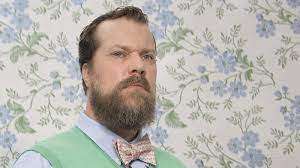John Grant Loves Being A Broad (Interview)
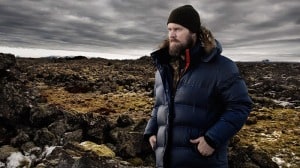 John Grant releases his new album, Grey Tickles, Black Pressure on Friday, October 9th. The American musician now calls Iceland his home, but travelled back to Texas to record with producer John Congleton. He also got a bit of help from Tracey Thorn, Amanda Palmer and former Siouxie & The Banshees drummer Budgie. Grant will perform for the first time in New Zealand on Friday, March 18 at the Auckland Town Hall as part of the Auckland Arts Festival. He will also be appearing at WOMAD March 18th – 20th, 2016, Brooklands Park and TSB Bowl of Brooklands,Taranaki. www.womad.co.nz. Early bird tickets go on sale on Saturday October 10th at 9.00am.
John Grant releases his new album, Grey Tickles, Black Pressure on Friday, October 9th. The American musician now calls Iceland his home, but travelled back to Texas to record with producer John Congleton. He also got a bit of help from Tracey Thorn, Amanda Palmer and former Siouxie & The Banshees drummer Budgie. Grant will perform for the first time in New Zealand on Friday, March 18 at the Auckland Town Hall as part of the Auckland Arts Festival. He will also be appearing at WOMAD March 18th – 20th, 2016, Brooklands Park and TSB Bowl of Brooklands,Taranaki. www.womad.co.nz. Early bird tickets go on sale on Saturday October 10th at 9.00am.
The 13th Floor’s Marty Duda spoke to John Grant on the phone from Reykjavik, Iceland where they discussed Grant’s musical influences and his feelings on America and living abroad.
Click here to listen to the interview with John Grant:
Or read a transcription of the interview here:
MD: You recorded the new album in Texas so, what was it like being back there to do that?
JG: Well, I love it. I mean, I definitely, I miss The States when I’m not there. I love it, but I just…I love being abroad as well. It’s funny, “I love being a broad”. It always makes me laugh. I like being in foreign countries as well. I love learning other languages and I love being in foreign countries and, I don’t know, I thoroughly enjoy being back in The States, and I can imagine living in The States again, but I just think that while I’m still relatively young and am interested in it and have the energy to do it, that one should take advantage of the possibility of getting to know other cultures. I don’t know, I guess I’m just a real language enthusiast.
MD: It’s interesting, because it’s quite an un-American trait because most Americans tend to be fairly culturally secular…just kind of insulated.
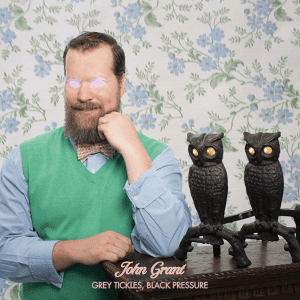 JR: Yeah, yeah. I probably thought I was escaping something when I left, when I was 19 and went to Germany for the first time. But of course at some point you realize that you love where you’re from, you know, that you love The States and that it’s great and you learn to appreciate it. But then I still am left with that bug of discovering new places and living in other places and so I think I learned to just appreciate both and that makes me very happy. I don’t know, I feel like I could be happy almost anywhere.
JR: Yeah, yeah. I probably thought I was escaping something when I left, when I was 19 and went to Germany for the first time. But of course at some point you realize that you love where you’re from, you know, that you love The States and that it’s great and you learn to appreciate it. But then I still am left with that bug of discovering new places and living in other places and so I think I learned to just appreciate both and that makes me very happy. I don’t know, I feel like I could be happy almost anywhere.
MD: That’s a good place to be. So, getting back to the album, and the recording of it…you recorded in Texas before, the album you did with Midlake, but this is a very different sounding record than that particular record. Maybe you can tell me how the musical journey has happened because a lot of people first found out about you from that record and that was more of a folkie-rock thing and now you’ve moved to this synthesizer-based thing that’s happening.
JG: Yeah, that feels a lot more true to who I am as a person. It’s sort of the thing I’ve always been listening to. Although, making the record with Midlake, that was also in keeping with my childhood in the 70s. But then in the 80s it was all about the British New Romantic and New Wave stuff for me and I suppose those are my great loves. I’ve always been a huge Devo fan and 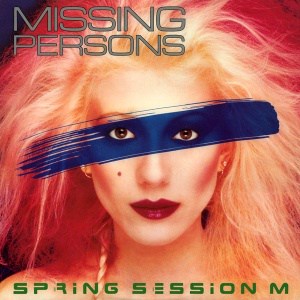 so, a lot of stuff that was going on in The States…I mean, Missing Persons record, Spring Session M, was a huge record for me. Gosh, there’s so many great things…Throwing Muses, Pixies…all sorts of great stuff, but then all the New Wave stuff too out of England. You know, Nina Hagen, from Germany, was a big one for me, Yello, from Switzerland, I loved all the synth scores. The Blade Runner soundtrack was a huge one for me, you know, the Vangelis score, also records by Jean Michel Jarre, Kraftwerk. I grew up playing classical piano, I love ragtime. I’ve always loved Cabaret Voltaire, New Order and Depeche Mode and Yazoo and all of these different things so I guess I just really connected with a lot of different types of music.
so, a lot of stuff that was going on in The States…I mean, Missing Persons record, Spring Session M, was a huge record for me. Gosh, there’s so many great things…Throwing Muses, Pixies…all sorts of great stuff, but then all the New Wave stuff too out of England. You know, Nina Hagen, from Germany, was a big one for me, Yello, from Switzerland, I loved all the synth scores. The Blade Runner soundtrack was a huge one for me, you know, the Vangelis score, also records by Jean Michel Jarre, Kraftwerk. I grew up playing classical piano, I love ragtime. I’ve always loved Cabaret Voltaire, New Order and Depeche Mode and Yazoo and all of these different things so I guess I just really connected with a lot of different types of music.
MD: I think that comes across on the record.
JG: Yeah, me too. There’s a lot of funk on this record. Sometimes I forget how much I loved things in the 70s like The Message from Grandmaster Flash. I think that’s one of the greatest songs ever made. And Purple Rain by Prince, I listened to that constantly. But we were also listening to Olivia Newton John and John Denver and The Carpenters and Supertramp. My brothers were listening to Kiss and Nazareth and Aerosmith and Van Halen. So there was really a huge cross-section of stuff going on there…and Loretta Lynn and Johnny Cash and Roger Miller and Patsy Cline…so I’m really happy that I love all of these different things, it’s a good feeling. But I think my heart is, you know, Devo.
MD: That’s cool, from good ol’ Ohio.
JG: Ohio is sort of the centre of the universe with all of those amazing roller-coaster and Devo and Pretenders and the Deal sisters.
MD: That’s right, they’re from there as well. I particularly liked Pere Ubu, who were from Cleveland, I think, or around that vicinity.
JG: Yeah, you know, I remember, people in Germany, when I lived there, were always going on about them and I always thought they were from Europe. So it’s nice to have somebody finally tell me because I sort of caught on that they were American at some point but I still had no idea where they were from. They touched a lot of people it seems like.
MD: Yep, yep, they were completely from out of left field…kind of punkish, because everything that was new in ’78, ’77, was considered punk, but they were very industrial sounding and kind of Kraut-rocky as well.
You mentioned the 70s and early 80s stuff, there are a lot of references to that in songs like Snug Slacks, with Charlene Tilton and Angie Dickinson.
JG: And GG Allin and Joan Baez
MD: Yeah, I never expected to hear them all in the same song together.
 JG: That song is very Grace Jones-inspired, I would say. She’s another really big one for me that I think is an artist that is absolutely amazing. It’s sort of this slow funk thing. That’s one of my favourite tracks on the record.
JG: That song is very Grace Jones-inspired, I would say. She’s another really big one for me that I think is an artist that is absolutely amazing. It’s sort of this slow funk thing. That’s one of my favourite tracks on the record.
MD: And you’ve written a song that’s a tribute to Geraldine Page and I was wondering why you decided to choose her among anybody else that you could have written about?
JG: Yeah, I don’t know, I think that she’s just somebody that I found very interesting as an actor. I think she stuck out for me when I first saw Interiors. I suppose that would have been back in the late 80s when I discovered that myself. I loved Woody Allen’s serious films like Another Woman and September and…what else?
MD: Crimes And Misdemeanours?
JG: I was just going to say that! That’s one of my favourite films of his and of all-time, I suppose. I love that one. But I suppose I saw her as a bit of an outsider. She had sort of strange mannerisms and I sort of felt the same way about Jessica Lange and Kim Stanley and I’ve always loved Gilda Radner and Madeline Khan, these really funny women as well. They sort of pop up in there too. I don’t know what it is about all these women that I find so fascinating. Maybe because I found women a lot nicer than men when I was younger. It’s sort of interesting to be sexually attracted to men but find women much more engaging. I don’t really understand that.
MD: You’ve got a couple of women on the record as well, Amanda Palmer and Tracey Thorn.
JG: Yeah, a couple of really impressive women who have done really well for themselves, who are very talented and sort of do whatever they want. They’ve weathered the ups and downs of a career in music. I’ve been listening to Tracey Thorn for 30 years and that voice never gets old for me. Now, Amanda Palmer, I wasn’t really familiar with her work. She approached me when I was in Australia at this festival, we were in Sydney, and I just really liked the way she was. She was playing a show in Dallas and got in touch with me. She was like, “Should I stop by the studio?” And I was like, “Absolutely, let’s do something!” I really dig the way she is as a person.
MD: Which track is she on on the record?
JG: She sort of duets with me on You & Him.
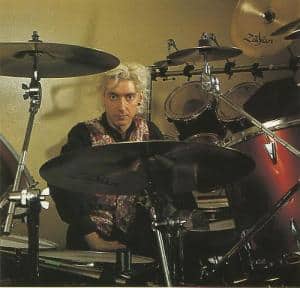
MD: And you also have Budgie, from Siouxsie & The Banshees playing on the record, is that right?
JG: Yeah, and they’re a big influence too, Siouxsie & The Banshees, I mean, absolutely amazing, and so much incredible stuff through the years. I never would have thought that I’d be playing in a band with Budgie. That’s incredible, and he’s still really…he’s so energetic and still just kicking ass, it’s really, really inspiring to see that.
MD: So when you get together with somebody that you’ve looked up to for a long period of time like Tracey Thorn or Budgie, how does it work? Do you tell them what you want them to play? Do you take a cue from them? How does the collaboration actually occur?
JG: Usually people want to know what you want and then they do their version of that. You just can’t be shy. You know you’ve gotta forget about who they are to you and go for it and make sure that…you know, people like to have direction. I certainly do. So, that’s been my experience, just forget about who they are to you, that they’re pretty much a hero to you, and just talk about the music and what you want and what you envision, you know, just really normally. That’s the best way to go about it and that works out well.
MD: Now the album itself, from what I understand, the title alludes to middle age and getting older and dealing with it. Is that an overarching theme of the record, do you think? Is that what has influenced the writing of the songs this particular time around?
JG: Well I am approaching middle age so I think it’s normal that that’s seeping into the music. It’s more of a dark, a black humour, you know, more of a joking around as far as, “Oh now I can look forward to panicking about death and middle age and dealing with mortality”. I suppose the theme of the record is just getting perspective and letting go, you know.
MD: It’s also bookended by these spoken word passages and the beginning and end, which are taken from The Bible, is that right?
JG: Yeah…it’s basically for me, the thread going through it is love and just an observation on how it has manifested in my life. There’s been a lot of negativity connected to it and I thought that was interesting considering I’ve had this…I don’t want to say that I’ve had this verse shoved down my throat throughout my life, but it was constantly there and constantly being referenced and “this is what love is supposed to be” and I thought it was an interesting juxtaposition to bookend the album with these verses. Sort of at the beginning you have these different voices and all these different languages you know, weaving in and out of each other and becoming this chaos of tape delay and everything. It’s sort of a metaphor for the chaos of the world telling you what you’re supposed to be and how you’re supposed to be in this world. And then just 12 songs which are each sort of observations about one human’s experiences in the world and the anger and the love and the hatred and the jealousy and the tenderness and kindness and fear and anxiety and all the shit that’s wrapped up in all of that, just freely expressed in each of those 12 songs.

MD: I thought it was kind of interesting that you chose to quote from The Bible and then here recently we have this whole kerfuffle with Kim Davis in Kentucky with her refusing to issue marriage licences to same sex couples because of her religious beliefs. Are you following that, checking to see how that plays out?
JG: I mean sort of, sort of…I expected that sort of thing to happen. I’m not surprised by it at all. I’m not very interested in it because I just don’t want to waste my time with people like her. I know what she thinks she’s doing and I feel like, good for her, that she’s standing up for what she believes in but I think it’s misplaced. I also remember hearing throughout my childhood how this thread going through Christianity was always about free will, and I find it so strange that people who say that they’re so attached to The Bible want to impose this by using the Constitution and the law of the land by forcing other people to live the way they think they should be living. It simply doesn’t make sense to me so it’s a complete paradox.
MD: It goes to show how blindly these people are thinking in terms that they will try and justify their actions no matter what.
JG: Yeah, I just find it fascinating because you cannot fucking legislate morality to other people. The fact that, it seems to be OK for her to break God’s laws by getting two divorces or whatever…I don’t mean that in any sort of mean-spirited way but it’s like none of this shit applies to her because she feels like she falls on the right side of the law by simply not being a pervert. But if you’re a pervert, then you’re fucked, according to these people, and its such bullshit that I just don’t even wanna follow it.
MD: Fair enough. On a more upbeat not, you’re going to be in New Zealand in, I think, March, is it?
JG: I can’t even tell you how excited I am about that.
MD: Well there are a lot of people here excited about it as well.
JG: Well that’s great. I’ve been wanting to come there for a couple of decades, ever since I saw Heavenly Creatures and Brain Dead. Brain Dead is one of my favourite movies. So yeah, I’ll be there with bells on.
[youtube https://www.youtube.com/watch?v=U2Ig4sMURdc&w=560&h=315]
